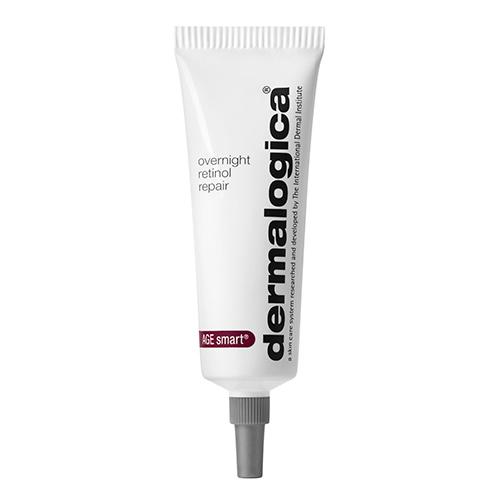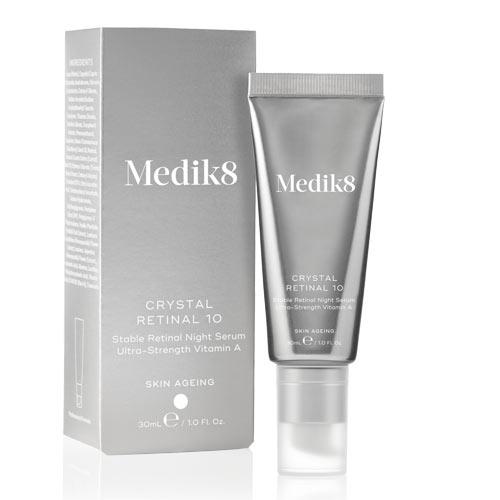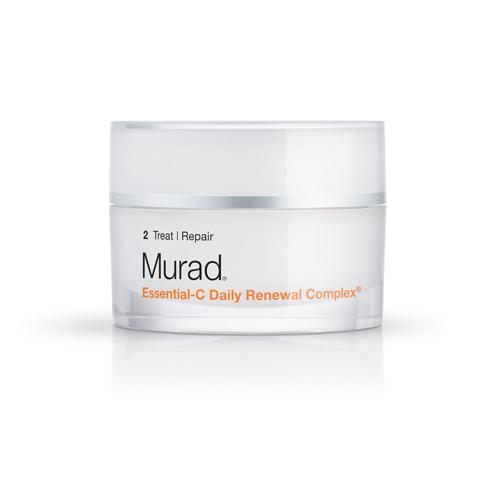
It’s set to be the hottest beauty ingredient of 2019 – but why is retinol creating such a storm?
What is retinol?
A form of vitamin A, discovered in the early 1900s, retinol is now available in products across the skincare market. This ‘power ingredient’ is mainly used to promote and accelerate cell renewal, increase collagen production and reduce the appearance of fine lines and wrinkles.
Most topically applied products work at the surface of the epidermis, but retinol works at a deeper cellular level, boosting the production of collagen from inside the ‘core layer’ of your skin.
Retinol makes you look more radiant by helping to create an environment in which epidermal turnover (when the skin sheds to reveal fresher skin underneath) is increased and cells can produce more collagen. This process happens naturally, but retinol speeds it up (which is particularly helpful if you’re over 30) so you’ll look your fresh-faced best.
Many skincare experts agree that retinol, which is usually applied through creams and serums, can really help to make a difference to skin conditions including spots and pigmentation – and skincare gurus say it’s super effective on lines and wrinkles too, leaving you with a brighter, clearer and smoother complexion. Dr. Murad, dermatologist and founder of Murad Skincare, has described the action of retinol as “exfoliating, aiding in the production of collagen, and fighting free radicals.”
Can anyone use retinol?
Not everyone. Rosacea, eczema and psoriasis sufferers are advised to avoid retinol as it could cause increased inflammation and enhanced symptoms.
You should also be careful if you’re under 25: retinol might be too harsh on younger or sensitive skin, leaving it vulnerable to sun damage.
If you’re over 25, and you want to introduce retinol to your regime, do it slowly: this is a powerful ingredient that can cause oversensitivity. Experts also say you should patch test first and start with a low concentration.
Skin experts suggest introducing retinol into your beauty routine once a week as a preventative measure in your late-20s and 30s – this way, you’ll slowly build a tolerance to the ingredient to avoid any redness or flakiness. In your 40s, retinol could be used three times a week in your skincare regime, increasing to every other night by your 50s.
How long before I see the results?
Retinol won’t transform your skin overnight. It could take a while to see results. Some users say they go through a stage of their skin actually looking worse, with spots coming to the surface and flaky skin, before it starts to improve.
But give it two to three months and you should start seeing the benefits.
If you’re using retinol regularly, make extra sure you protect yourself from the sun with a higher daily SPF; retinol can weaken your skin’s resistance to harmful UVA rays and increase photosensitivity.
What retinol products could I try?
From the skincare experts at Dermalogica, try Age Smart Overnight Retinol Repair, with active microencapsulated pure retinol to help increase collagen production and cell turnover; or Age Smart Age Reversal Eye Complex , designed for mature or prematurely ageing skin around the eye area and with new 0.1% microencapsulated retinol for fewer visible fine lines and wrinkles.

Medik8’s Crystal Retinal 10 is a new product with 0.1% stabilised retinaldehyde, a super-charged derivative of vitamin A that Medik8 claim works up to 11 times faster in the skin than classic forms of retinol. Retinol 3 TR Serum from Medik8 is formulated with 0.3% retinol and supported by vitamin E for enhanced stability, while the 10 TR Serum provides fast absorbing vitamin A and 1% retinol to stimulate the production of collagen and elastin.

And Murad’s Essential C Daily Renewal Complex, a powerful anti-ageing formula, contains vitamin C and retinol, two super ingredients working together to fade unwanted pigmentation, restoring clarity and an even skin tone.

